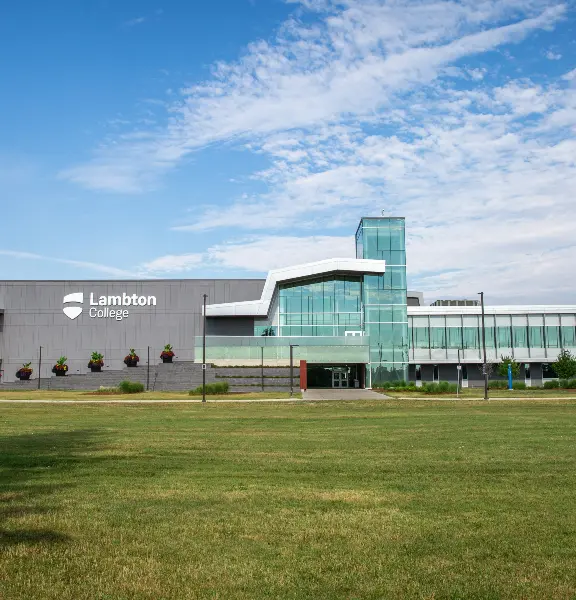-
4 / 24 / 2025Building Removal Part of Long-Term Vision to Enhance Lambton College Campus
-
4 / 17 / 2025Lambton College Receives Funding to Launch AI for Advanced Manufacturing Development Site
-
4 / 15 / 2025Globally Recognized English Language Proficiency Test Now Administered at Lambton College
-
4 / 14 / 2025Lambton Partners With Small, Northern and Rural Colleges to Advance Province’s Role as Canada’s Economic Engine
-
4 / 03 / 2025Lambton College Photography Students to Showcase Work As Part of First Friday Events
-
4 / 02 / 2025Lambton College Celebrates its Technology Access Centres and Strengthens Innovation in the Community
-
3 / 31 / 2025Lambton College Goes “All In” with New Strategic Plan
-
3 / 28 / 2025Last Chance to Purchase Tickets for the Funding Futures Lottery
-
3 / 18 / 2025Spring Open House to Showcase Student Life at Lambton College
-
2 / 12 / 2025Inclement Weather Advisory
-
12 / 13 / 2024Thank You and Happy Holidays from all of us at Lambton College
-
12 / 09 / 2024Lambton College Ranks #2 in Canada for Collaborative Applied Research
-
12 / 04 / 2024Statement on the Loss of a Lambton College Student
-
11 / 28 / 2024Lambton College Pitch Competition Celebrates Innovative Student Business Concepts
-
11 / 21 / 2024Lambton College Presents the 2024 Premier’s Awards Nominees
-
11 / 11 / 2024Military-Connected Colleges Rally Around Canadian Armed Forces and Veterans to Support Transition into Civilian Careers
-
11 / 08 / 2024Lambton College Recognized with National Award for Research Collaboration with Origin Materials
-
10 / 09 / 2024Firefit Team Claims Medals, Awards and Records to Close Season
-
10 / 07 / 2024Students Gain Real-World Experience Working with Tigers, Red Wings
-
10 / 03 / 2024Lambton College To Host Mega Job Fair Featuring Hundreds of Jobs
Skip to main page content



